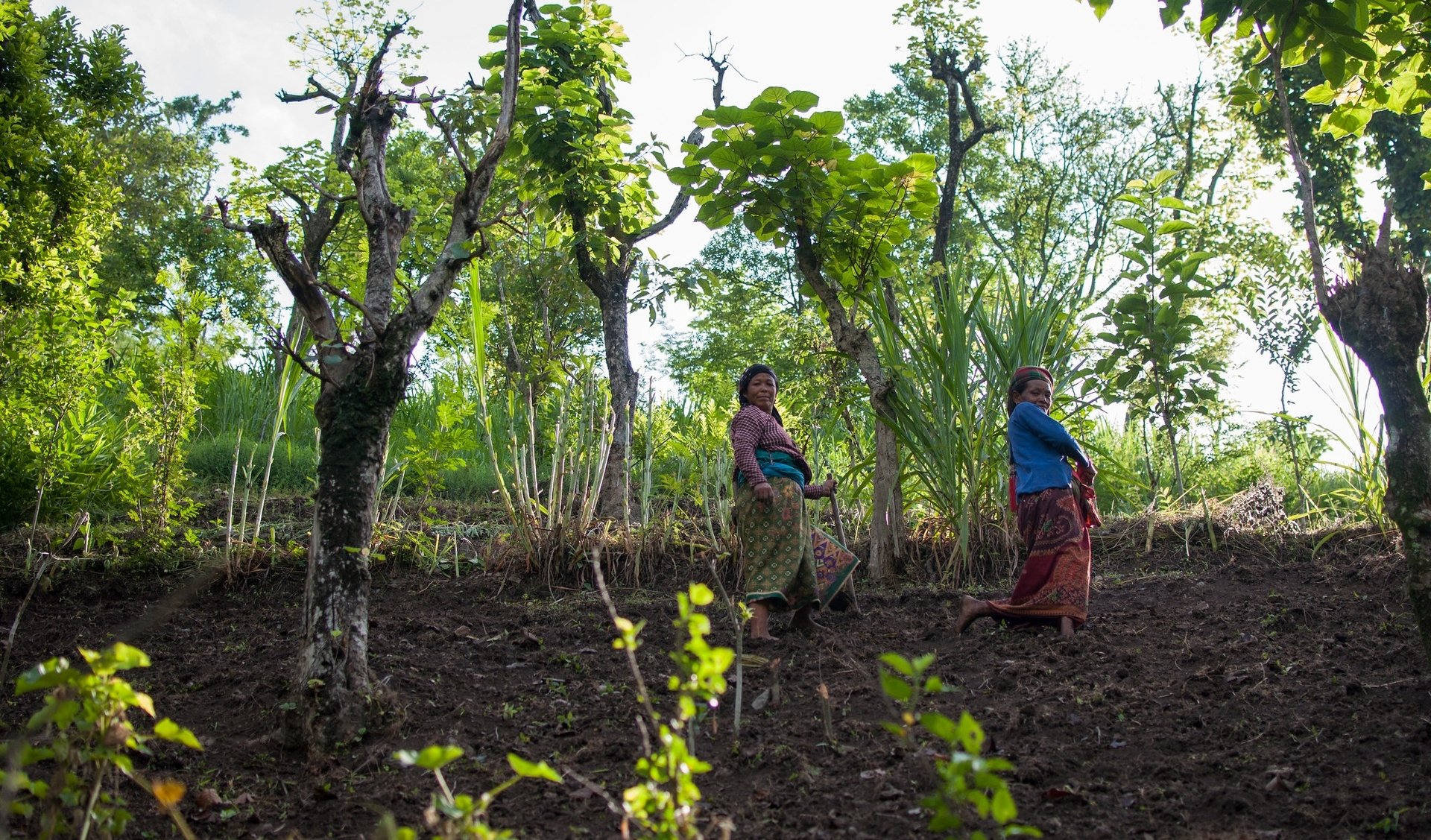May 21, 2025 | 04:36 GMT +7
May 21, 2025 | 04:36 GMT +7
Hotline: 0913.378.918
May 21, 2025 | 04:36 GMT +7
Hotline: 0913.378.918

Several projects focus on returning degraded landscapes to functioning ecosystems. Photo: FAO
Building on growing momentum to tackle environmental problems by addressing the ways in which our food and fiber are produced, the Global Environment Facility has approved 26 projects led by the Food and Agriculture Organization of the United Nations.
“To achieve the 2030 Agenda we need a healthy planet and healthy people. These projects will help countries conserve and use natural resources sustainably while providing nutritious diets and green and climate-resilient livelihoods and contribute to the implementation of the Kunming-Montreal Global Biodiversity Framework and the Paris agreement” said FAO Deputy Director-General Maria Helena Semedo, welcoming the greenlighting of the projects by the 64th Council Session of the GEF, held in on 26 June in Brasilia.
The projects total $174.7 million in GEF funding and leverage $1.2 billion in co-financing. With these new projects, FAO’s partnership with the GEF will have helped countries access over $1.4 billion in financing and leverage over $9 billion in co-financing to transform agrifood systems into solutions to biodiversity loss, climate change, ecosystem degradation, and pollution on land, in fresh water, and in our seas, Semedo said.
Integrated programming for impact
These 26 projects will support countries to create or improve the management of nearly 17.9 million hectares of protected areas on land and sea, improve the sustainability of fisheries, forestry, and agricultural practices on over 27 million hectares of landscapes and seascapes, restore 820,000 hectares of ecosystems, mitigate 275 million tons of greenhouse gas emissions, improve cooperative management of 4 shared water ecosystems, and benefit 1.6 million women and men.
Six projects in Lao People's Democratic Republic, Nicaragua, Panama, Papua New Guinea, Thailand and Venezuela are part of the Critical Forest Biomes Integrated Program, which will support the protection and conservation of globally important forests and improve management of forest resources. FAO and International Union for Conservation of Nature (IUCN) are leading the $38 million Indo-Malaya Critical Forest Biome Integrated Program.
Five projects in Cabo Verde, Cuba, Mauritius, Trinidad and Tobago, and Vanuatu are part of the Blue and Green Islands Integrated Program, which will address the interdependence of environment and economic systems in SIDS (Small Islands Developing States).
Four projects in Côte d’Ivoire, Nepal, Sao Tome and Principe, and Viet Nam are part of the Ecosystem Restoration Integrated Program, which will return hundreds of millions of hectares of degraded landscapes to functioning ecosystems and generate economic, ecological and livelihood benefits.
One project in Costa Rica will join the Net Zero Nature Positive Accelerator Integrated Program, which will advance a whole-of-government strategy, across all sectors and actors, to address the twin threats of global biodiversity loss and climate change.
One project in Pakistan will join the Eliminating Hazardous Chemicals from Supply Chains Integrated Program and utilize circular bioeconomy principles to transform banana waste into a sustainable alternative to cotton.
Support through individual projects
FAO will also support countries through individual projects that focus on biodiversity conservation, land degradation, climate change adaptation, and management of shared water systems:
A regional project in Djibouti, Egypt, Eritrea, Jordan, Sudan, and Yemen will promote sustainable fisheries management in the Red Sea Large Marine Ecosystem.
A global project will pilot solutions to reduce sea-based marine plastic litter in Costa Rica, Kenya, and Vanuatu.
In Venezuela, FAO will strengthen management to combat invasive aquatic species in Marine Coastal Protected Areas.
In Chile, FAO will strengthen inter-institutional coordination for biodiversity mainstreaming on local, national, and regional levels.
In Honduras, FAO will support income diversification through restoration and nature-based solutions while improving governance of sustainable production and biodiversity conservation in the forest corridor.
In Mexico, FAO will help rebuild ecological integrity and promote green recovery through integrated landscape management, improved governance, and innovative financing in the Biocultural Corridor of the Central West of Mexico.
In Haiti, FAO will promote sustainable land management to recover and restore prioritized landscapes in Southern Haiti for environmental services and food security.
In Zambia, FAO will enhance climate change adaptation in local communities, reduce land degradation and enhance biodiversity conservation through an integrated climate-resilient landscape management approach.
In Cabo Verde, FAO will support climate change adaptation and increased food security through agro-ecological solutions, improved governance, and access to climate financing.
Addressing complex challenges
As a partner agency for the Global Environment Facility (GEF), FAO supports countries worldwide in addressing the complex challenges at the nexus between the agrifood systems and the environment. FAO’s global GEF portfolio currently exceeds USD 1.3 billion, assisting more than 120 countries in projects that respond to local priorities, deliver global environmental benefits, and advance the Sustainable Development Goals (SDGs).
(FAO.org)

(VAN) Attempts to bring down the price of the Japanese staple have had little effect amid a cost-of-living crisis.

(VAN) Fourth most important food crop in peril as Latin America and Caribbean suffer from slow-onset climate disaster.

(VAN) Shifting market dynamics and the noise around new legislation has propelled Trouw Nutrition’s research around early life nutrition in poultry. Today, it continues to be a key area of research.

(VAN) India is concerned about its food security and the livelihoods of its farmers if more US food imports are allowed.

(VAN) FAO's Director-General emphasises the need to work together to transform agrifood systems.

(VAN) Europe is facing its worst outbreak of foot-and-mouth since the start of the century.

(VAN) The central authorities, in early April, released a 10-year plan for rural vitalization.